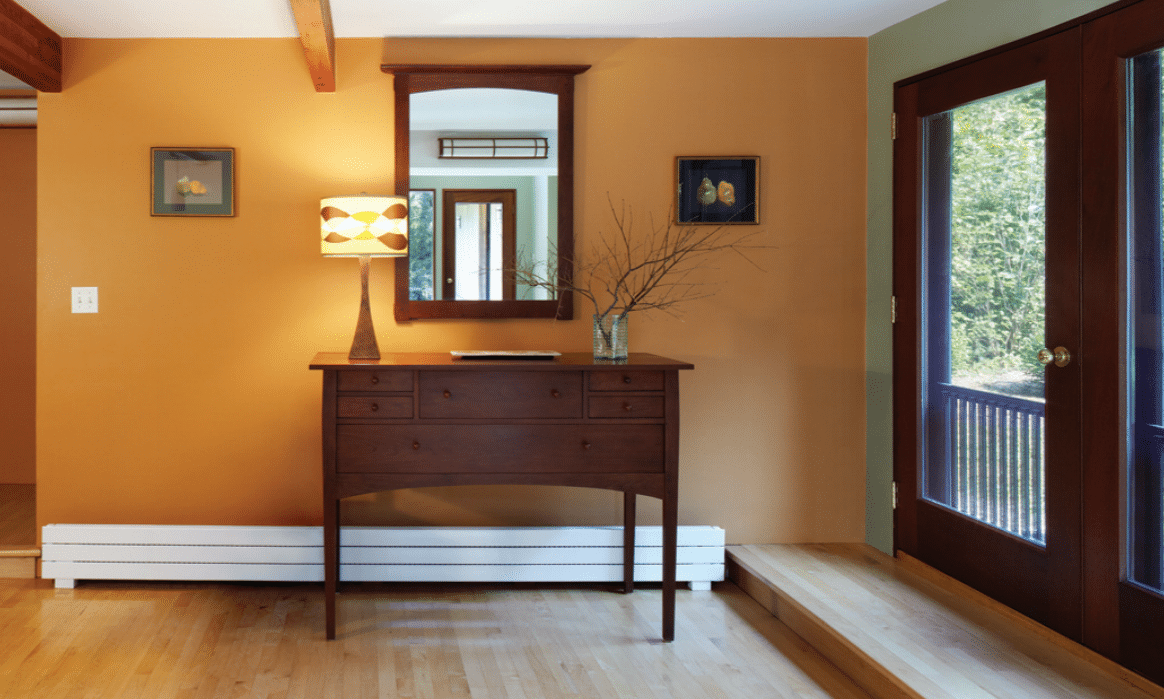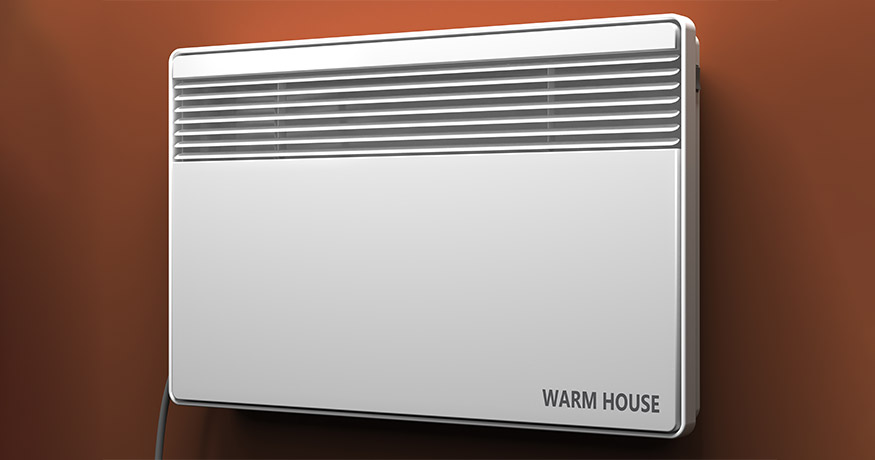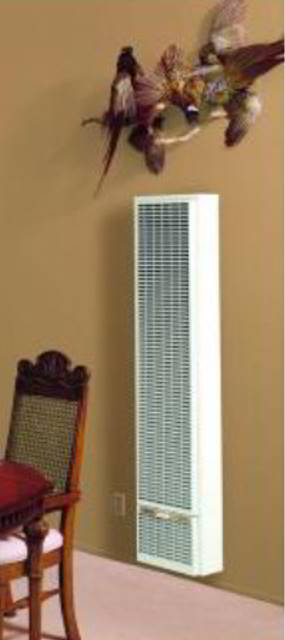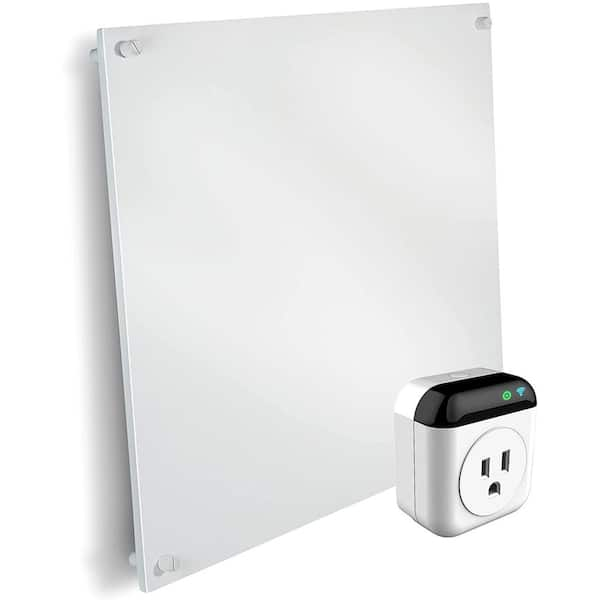Sealing your furnace room or doing improvement in your basement is a great idea, but it can be dangerous if you don’t check. Wall heaters are heating units that are installed in or attached directly to a wall.

Buy Econohome Wall Mount Space Heater Panel - With Thermostat - 600 Watt Convection Heater - Ideal For 200 Sq Ft Room - 120V Electric Heater - Save On Your Home Heating
Avoid placing electric space heaters in locations where spills are likely to occur, such as near a sink in the kitchen.

How much space should be behind a wll heater. These types of heaters should be placed so that they circulate air wherever it's needed, and so that they aren't. How much clearance is needed around a furnace? The usual recommendation is that your system should be about 30 inches away from furnace’s walls on all of its sides.
As for the side of the indoor unit, my recommended space clearance is 4″ (100mm). For the bottom mount fridge, it has a width of 700mm and requires at least 50mm space on either side. 6 inches between the sides and leafy plants, with a few extra inches left for growth.
8 feet between the top and blockage, like a deck or roof overhang. There must be a minimum of one to two inches space above the top of the fridge. This kind of furnace draws combustion air from the.
Place it under the heater and pipe it into an adequate drain for water disposal. You also need to check the space has enough airflow and ventilation, especially if you have an aging furnace with a metal flue. The ideal space you should leave is two to three inches.
Washers vary between 25 and 28 inches in depth, while dryers can be between 25 and 32 inches deep. You can find measurements specific to your type of fridge in the dropdown menu below. 27 x 38 x 30 inches.
A platform shall not be required for room heaters. For an idea of how much space you’ll need, the centre for alternative technology suggests that a standard ground source heat pump needs somewhere between 50 and 80 metres of pipe per kilowatt, or just 10. A minimum space of 800mm is required in total.)
Here is how much space you should leave: Placing furniture closer than that creates a potential fire hazard, and it can greatly diminish the heater's performance by restricting airflow to and from the heater. However, this depends on the temperature of the space that the door connects to.
For example, if the door leads out into. Enjoying exceptional heating with one of these units is easy, simply follow a few safety rules and you can benefit. 2 feet between the sides of the unit and dense shrubs or solid fences.
Since radiators move heat around the room via convection, positioning the radiator here shouldn’t be a problem. For stoves installed in a recess, the hearth must extend. Similarly, they need to have at least six inches between the front sides with the ventilation required.
They are most commonly used in studio apartments, compact living spaces and smaller offices, because they generate a good amount of heat suitable for keeping small areas warm, yet don’t take up any valuable floor space. In some instances, particularly in smaller rooms, positioning a radiator behind a door may be your only option. For the space between the indoor unit and the ceiling, i recommend 8″ (200mm).
27 x 39 x 32 inches. Some space heaters can reach temperatures of up to 600 degrees fahrenheit! Once you choose the area that needs heat the most, make sure that the heater is placed a foot or two from the wall.
As a general recommendation, your heater should be 30 inches away from furnace room walls on all sides. The free space measurements refer to the distance between the fridge and other objects. In terms of the distance between the stove’s external surfaces and surrounding walls, the minimum to the rear and sides is 150mm.
These heaters are economical, efficient, simple to install, and offer quiet heating with minimal disturbances. 27 x 38 x 32 inches. Local requirements a general standard is to have at least 30 inches of space between the walls and a furnace's sides.
A level working space at least 30 inches deep and 30 inches wide (762 mm by 762 mm) shall be provided in front of the control side to service an appliance. Baseboard heaters typically need at least 12 inches of space in front of the heater. They're also perfect for small spaces as they don't take up any floor space.
The relief valve, often located at the top of the hot water tank, will also need to be piped to an open drain. There does, however, have to be adequate working space (24 inches commonly) around the heater to service the burner and replace the heater. The perks to wall heating with electric technology are considerable.
This allows our service experts to comfortably replace it. The average width of a washer or dryer is 27 inches, meaning if you have one next to the other you'll need at the very least a space of 54 inches. 27 x 38 x 32 inches.
Though before doing any changes, be sure to consult manassas’s law for any clearance requirements. Electric heaters unlike gas units need to be three feet off of the. Where to install permanent space heaters.
The drain pan should be at least two inches deep and be at least two inches longer and wider than the water heater dimensions. In addition to being a fire hazard, they are also a burn or shock hazard, especially for pets and children. Top loading machines are typically around 36 inches in height, while front.
The minimum air space required around an electric water heater is six inches on all sides. Space heaters, particularly those that produce convective heat (like gas heaters) should be installed so that they aren't blowing air directly onto a wall surface (as they might, for example, if they were positioned in a corner). The most popular manufacturers in the us opt for the following standard dimensions (width x height x depth):
According to high’s chimney service, heat shields mounted to the wall are generally made from metal and hang one inch from the wall. Moreover, you need 12 inches between the air ducts, and any combustible materials. You can place a couch or chair in front of a heater, but it must be at least a foot away.
In existing homes, it's easier to install radiant heating in the walls than under the floor—often an affordable compromise for energy efficient comfort. In addition, you should have 8″ (200mm) of clear space below the indoor unit. The free space at the rear side of the refrigerator is most important if the compressor coils are located there.
If you need to warm a more confined space, like a hallway, several lasko room heaters are.
/electric-baseboard-heaters-overview-1821912-hero-aed6bc289ef6432fb17d8fe984eb85fc.jpg)
Electric Baseboard Heater Safe Furniture Clearances

The 6 Best Electric Wall Heaters - Reviews And Buying Guide - Essential Home And Garden

Are Wall-Mounted Electric Heaters Safe? | Runtalelectric.com

Wall-Mounted Furnaces & Heaters Inspection, Troubleshooting, Repair Advice For Direct-Vent Gas-Fired Wall Heaters

Econohome Wall Mount Smart Space Heater Panel - With Wi-Fi Thermostat - 400-Watt Convection Heater 400Wsmart Thal